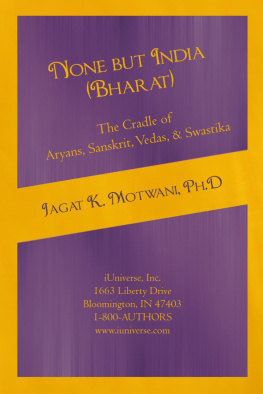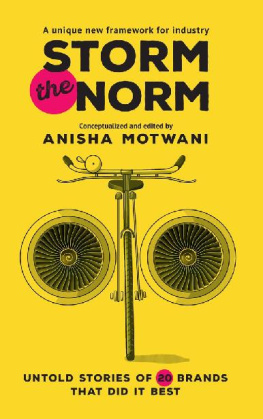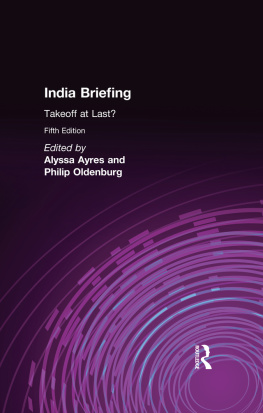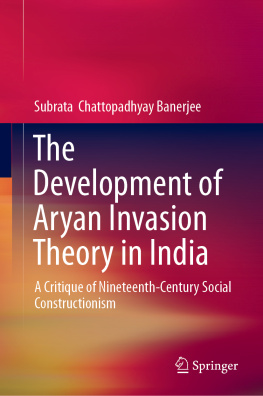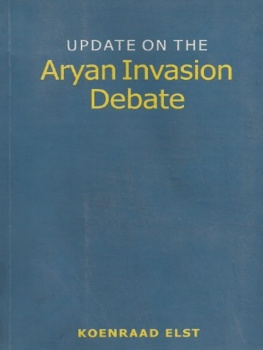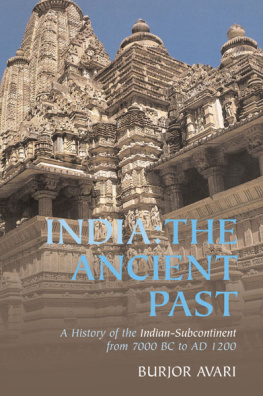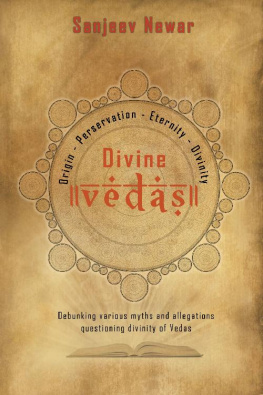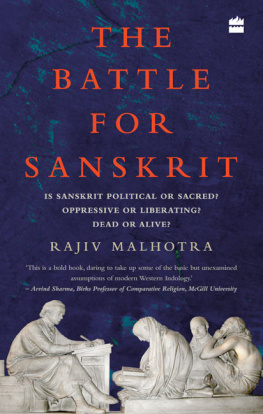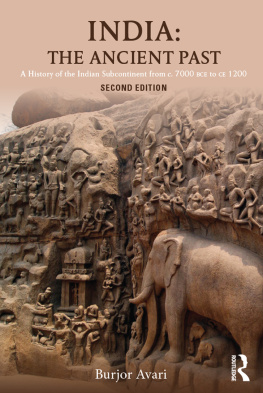Motwani - None but india the cradle of aryans, sanskrit, vedas, & swastika: aryan invasion of india and
Here you can read online Motwani - None but india the cradle of aryans, sanskrit, vedas, & swastika: aryan invasion of india and full text of the book (entire story) in english for free. Download pdf and epub, get meaning, cover and reviews about this ebook. year: 2011, publisher: iUniverse, Inc., genre: Home and family. Description of the work, (preface) as well as reviews are available. Best literature library LitArk.com created for fans of good reading and offers a wide selection of genres:
Romance novel
Science fiction
Adventure
Detective
Science
History
Home and family
Prose
Art
Politics
Computer
Non-fiction
Religion
Business
Children
Humor
Choose a favorite category and find really read worthwhile books. Enjoy immersion in the world of imagination, feel the emotions of the characters or learn something new for yourself, make an fascinating discovery.
- Book:None but india the cradle of aryans, sanskrit, vedas, & swastika: aryan invasion of india and
- Author:
- Publisher:iUniverse, Inc.
- Genre:
- Year:2011
- Rating:5 / 5
- Favourites:Add to favourites
- Your mark:
- 100
- 1
- 2
- 3
- 4
- 5
None but india the cradle of aryans, sanskrit, vedas, & swastika: aryan invasion of india and: summary, description and annotation
We offer to read an annotation, description, summary or preface (depends on what the author of the book "None but india the cradle of aryans, sanskrit, vedas, & swastika: aryan invasion of india and" wrote himself). If you haven't found the necessary information about the book — write in the comments, we will try to find it.
Motwani: author's other books
Who wrote None but india the cradle of aryans, sanskrit, vedas, & swastika: aryan invasion of india and? Find out the surname, the name of the author of the book and a list of all author's works by series.
None but india the cradle of aryans, sanskrit, vedas, & swastika: aryan invasion of india and — read online for free the complete book (whole text) full work
Below is the text of the book, divided by pages. System saving the place of the last page read, allows you to conveniently read the book "None but india the cradle of aryans, sanskrit, vedas, & swastika: aryan invasion of india and" online for free, without having to search again every time where you left off. Put a bookmark, and you can go to the page where you finished reading at any time.
Font size:
Interval:
Bookmark:
None but India (Bharat)
The Cradle of
Aryans, Sanskrit, Vedas, & Swastika
Aryan Invasion of India and IE Family of Languages
Re-examined and Rebutted
Jagat K. Motwani, Ph.D.
Areas of interest
Aryans Europeans
Sanskrit Dravidian languages
Rig Veda Hinduism
Linguistics Indo-European family of languages
Archeology Sindhu (Indus) Valley Civilization
Colonialism History
iUniverse, Inc.
New York Bloomington
Copyright 2010 by Dr. Jagat Motwani
All rights reserved. No part of this book may be used or reproduced by any means, graphic, electronic, or mechanical, including photocopying, recording, taping or by any information storage retrieval system without the written permission of the publisher except in the case of brief quotations embodied in critical articles and reviews.
iUniverse books may be ordered through booksellers or by contacting:
iUniverse
1663 Liberty Drive
Bloomington, IN 47403
www.iuniverse.com
1-800-Authors (1-800-288-4677)
Because of the dynamic nature of the Internet, any Web addresses or links contained in this book may have changed since publication and may no longer be valid. The views expressed in this work are solely those of the author and do not necessarily reflect the views of the publisher, and the publisher hereby disclaims any responsibility for them.
ISBN: 978-1-4502-6127-2 (sc)
ISBN: 978-1-4502-6128-9 (ebook)
Library of Congress Control Number: 2011900432
Printed in the United States of America
iUniverse rev. date: 01/14/2011
About the Author and his other books
Jagat K. Motwani, Ph.D., Fulbright
M.A. (Eco), M.S.W., M.S. University of Baroda, India. Ph.D. Fordham University, New York, and Fulbright Scholar.
Associate Professor at graduate schools of social work in India (1958-70).
Asst. Director of Social Service, New York (1970-1988).
Psychotherapist & family therapist (Pvt. practice, on PT basis) (1971-1995)
Organized and Moderated several conferences on family and youth issues all over America and India (1981- 2009).
Visiting scholar on Indian Diaspora and family issues to Delhi, Gujarat, and Patan universities.
Writer
Areas of interest: Linguistics, Language, History, Indus Valley civilization, and Indian Diaspora.
Other books by the author
1. Sindhu (Indus) Valley Civilization: Heritage of the Culture, Sindhyat, & Entrepreneurship of Sindhis (2009).
2. America and India: In a Give & Take Relationship (2003).
3. Global Indian Diaspora: Yesterday, Today and Tomorrow (!993).
4. Global Migration of Indians: Saga of Adventure, Enterprise, Identity & Integration (!989).
Chief author of a column on family and youth issues for two Indian Weekly News Papers in America, !978- 1988.
Dedicated
to
All the Scholars
who have been silent subjects of this research
without whom
the book would have not seen the sunshine
Acknowledgements
The book on various multifarious interrelated aspects issues of human life, such as originality, identity, family, heritage, language, culture, religion, sacred scriptures can not and should not be written without help of several persons of various disciplines history, archeology, linguistics, anthropology, sociology, etc. I am fortunate that I have received willing cooperation from several persons, particularly my family, and related literature without which the book would not have seen the light of the sun. My heart-felt gratitude to:
My younger daughter Neha for her much-needed help in word processing, paginating, making chapter-wise headers, and preparing Index, without which the book would not have been in such a professional format.
My son-in-law Mr. Emad Asghar for his help in taking a few computerized pictures and maps. The pictures have a language, more effectively expressive to adequately describe what I want to convey.
My elder daughter Shilpa has been of great help in the grammar and punctuation. Mine is basically Indo-British English, though New York Ph. D.
Prof. Emanuel Boussios provided Greek words for several English words required in a table (Chapter Four).
Friend Ms. Rani Mothey for her very useful input by way of her correcting and feeding more required information in regard to some Vedic religious and cultural events..
My brother Lal and friend Mr. Srichand Sidhwani spent several hours making required maps and images which could not be used because of some copyright formalities.
Loving appreciation for my 3-and-2-month-always-smiling prince, grandson Remi for his playful company in my study room whenever I needed to give recess to my computer-fatigued eyes.
Last, but not the least, the subjects of my research the authors of the books, journals and encyclopedias without whose participation, though indirect and silent, this book would not have been a useful product. Their names are given in the Appendix-A. I. Very sorry, I might have missed some.
Jagat K. Motwani, Ph.D.
Preface
The title of the Will Durants book (1935): The Story of Civilization: Our Oriental Heritage raised my curiosity to know what Europeans are thinking about India and her civilization. Durant (p.391) inspired me to know my India (Bharat) better:
Nothing should more deeply shame the modern student than the recency and inadequacy of his acquaintance with India. an impressive continuity of development and civilization from Mohenjo-daro, 2900 B.C. or earlier, to Gandhi, Raman and Tagore; this is the India that patient scholarship is now opening up, like a new intellectual continent, to that Western mind which only yesterday thought civilization an exclusively European thing.
Durant, in Foot Note, writes that from the time of Megasthenes, who described India to Greece ca. 302 B.C., down to the eighteenth century, India was all a marvel and a mystery to Europe. So was India mystery to me too. The more I read, the more ignorant and confused I feel about India about her name, her natives (whether Aryans or Dravidians), native language (Sanskrit or Dravidian), and about the originality and the antiquity of the Vedas and Vedic religion. I felt confused about my own identity. I didnt know if I was the original Aryan or a descendant of an invading Aryan.
I rightly thought Ph.D. would help. I started reading related books. I found answers to my questions related to my identity and heritage. Being a serious student of language and history, I did not think that a civilized historian, particularly a British, would abuse his only child HISTORY. I used to blindly worship HISTORY as Sarasvati, the Hindu goddess of knowledge.
Historian Herbert Muller has said: on national scale, history becomes the kind of prejudice and conceit that led Valery to call history the most dangerous product ever concocted by the chemistry of brain. Herbert Butterfield has said: Wrong history is being taught in all countries, all the time, unavoidably; while we have great need of history, our first need is to unlearn most of we have been taught.
Historians, Herbert Muller, Valery and Butterfield opened my eyes that one should carefully examine what several historians have written to find out if their texts about the same issue have unity of facts. To my shock, I found out contradictions between scholars and even within one and the same authorship. So, I have to objectively sift the evidences wrong from the right to get correct perspectives on the issues and events under my study, such as the origins and antiquities of the Aryans, Sanskrit, the Vedas and the Swastika.
It appears that historians and linguists have created the two inter-twined theories AII and IE to support the British, rather European, colonial and missionary agenda, guided by their policy Divide and Rule to further the spread of European colonial empires.
Next pageFont size:
Interval:
Bookmark:
Similar books «None but india the cradle of aryans, sanskrit, vedas, & swastika: aryan invasion of india and»
Look at similar books to None but india the cradle of aryans, sanskrit, vedas, & swastika: aryan invasion of india and. We have selected literature similar in name and meaning in the hope of providing readers with more options to find new, interesting, not yet read works.
Discussion, reviews of the book None but india the cradle of aryans, sanskrit, vedas, & swastika: aryan invasion of india and and just readers' own opinions. Leave your comments, write what you think about the work, its meaning or the main characters. Specify what exactly you liked and what you didn't like, and why you think so.

